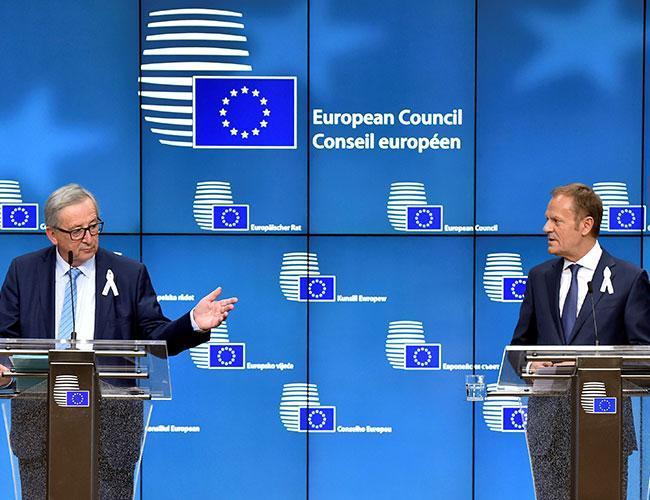
The leaders of the EU and Turkey will meet on March 26 at the Evksinograd residence in Varna, Bulgaria to discuss ways to revitalize longstanding processes between Turkey and the bloc, namely upgrading the Customs Union agreement, requirements of a signed migrant deal, the fight against terrorism and Turkey’s accession to the bloc.
President Recep Tayyip Erdoğan will meet European Council President Donald Tusk, European Commission President Jean-Claude Juncker and Bulgarian Prime Minister Boyko Borissov.
The meeting will build on the previous leaders’ meeting that took place on May 25, 2017. High-level dialogues between the EU and Turkey had taken place on issues of transport, economic cooperation, counter-terrorism and foreign policy, but the two sides failed to make a breakthrough agreement on major issues such as visa liberalization and the customs union.
On the Customs Union issue, the council has not given the required mandate to the European Commission to launch technical talks with Turkey as there has not been a consensus yet among the EU members. Germany, primarily, is hesitated to push for the process following a series of disputes with the Turkish government.
“Junker and Tusk cannot give any promises on behalf of 28 countries regarding the Customs Union issue. Turkey has to convince [German Chancellor Angela Merkel] first in order to launch these talks. Germany has given some positive signals, but sure they will expect Ankara to take some steps with regards to the rule of law in the country,” an EU diplomat told the Hürriyet Daily News on condition of anonymity.
The Customs Union between Turkey and the bloc came into force on Dec. 31, 1995. It covers all industrial goods, but does not address agriculture (except processed agricultural products), services or public procurement right now.
The European Commission on Dec. 21, 2016 had stated that it asked the European Council for a mandate to launch talks with Turkey to modernize the existing EU-Turkey Customs Union.
The meeting will also revise the implementation of the migrant deal signed by the two sides on March 18, 2016. Turkey has been urging EU countries to meet their pledge for a resettlement agreement as the bloc has lagged behind in admitting Syrian refugees living in Turkey, a Turkish official told Hürriyet Daily News.
The migrant deal envisages a one-for-one formula under which failed asylum seekers in Europe are returned to Turkey while Syrian refugees are resettled in EU states in a quota system.
In return for hosting Syrian refugees on its soil, Turkey was promised to be given the full amount of six billion euros in two parts. The first part, 3 billion euros, is to be fulfilled by 2018.
The European Commission said it will grant another 3 billion euros ($3.7 billion) in funding for Syrian refugees living in Turkey as part of the refugee deal. A decision is expected to be endorsed by the council on March 23.
Turkey submitted a position paper to the EU in February regarding the benchmarks required to launch talks for visa-free travel for Turkish citizens, including a proposal of an amendment in anti-terror law that has long been urged by Brussels to comply with European standards.
The EU has not responded to its assessment for this position paper and waited for the Varna meeting, the official said.
In Varna, the Turkish leader will ask EU officials to reiterate Turkey’s position as being a candidate for full membership to the bloc and give up speculations by some member states for an alternative model of partnership with Turkey, said the Turkish official.
For the EU’s side, the bloc has long been calling on Ankara to end the state of emergency that was declared after the July 2016 attempted coup. But Ankara is not keen to end it soon.
Another concern of the EU is the post-coup practices carried out under the state of emergency, the detention of journalists, dissident politicians, academics and civil society representatives.